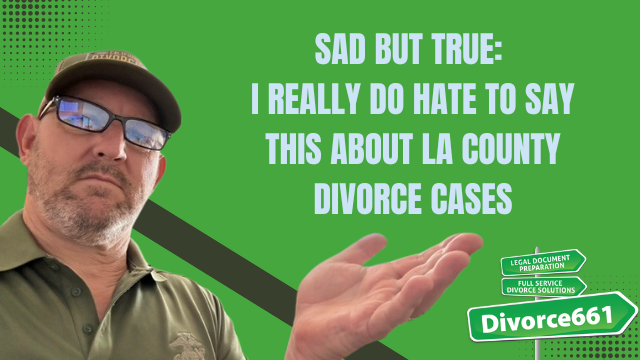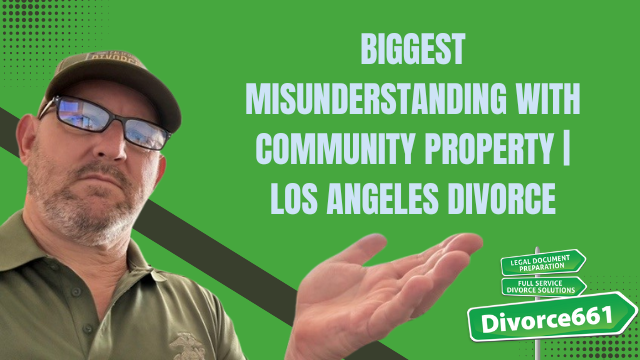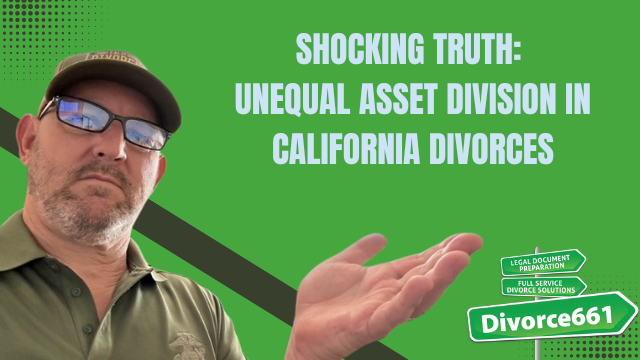🔑 Unlocking the Key to Court-Approved Agreements: Los Angeles Divorce & Santa Clarita Divorce
Navigating the divorce process can be overwhelming, especially when it comes to ensuring that the agreements you and your spouse reach will be accepted by the court. Fortunately, with the right guidance, it’s entirely possible to create agreements that satisfy both parties and gain court approval smoothly. Drawing on insights from Tim Blankenship of Divorce661, this article breaks down how to unlock the key to court-approved divorce agreements in California, specifically for couples in Los Angeles and Santa Clarita.
Understanding the Importance of Court-Approved Agreements
When couples decide to divorce amicably, one of the most critical steps is agreeing on the terms of their separation. These agreements often cover finances, property division, child custody, and support arrangements. But reaching an agreement that works for both parties isn’t the only requirement — the court must also approve it. This approval ensures that the agreement is fair, legally sound, and enforceable.
As Tim Blankenship emphasizes, “Whatever you and your spouse agree to is going to be fine with the court so long as you have someone like me who knows how to put it all together to make sure it’s something that can be approved by the court.” This highlights the value of expert guidance in drafting agreements that meet court standards.
Key Elements for Court Approval
To ensure your divorce agreement receives court approval, consider the following important elements:
- Clarity and Detail: The agreement must clearly outline all terms without ambiguity. Vague language can lead to delays or rejection.
- Fairness: Courts look for agreements that are equitable to both parties. Unfair agreements might be challenged or dismissed.
- Compliance with California Law: All terms must adhere to state laws regarding property division, child custody, and support.
- Proper Documentation: The paperwork must be complete, accurate, and properly formatted for court submission.
How Professional Guidance Makes a Difference
While it’s possible to draft your own divorce agreement, having a knowledgeable professional on your side can make a significant difference. A specialist like Tim Blankenship understands the nuances of California family law and the expectations of local courts in Los Angeles and Santa Clarita.
With expert assistance, you can:
- Ensure all legal requirements are met.
- Draft agreements that are both fair and comprehensive.
- Reduce the likelihood of delays or disputes during the approval process.
- Navigate the court system confidently and efficiently.
Why Amicable Couples Benefit from Full-Service Divorce Solutions
For couples who wish to part ways amicably, a full-service divorce solution can streamline the entire process. Services like those offered by Divorce661 provide support from initial consultation to final court approval, making sure that every detail is handled professionally.
This approach not only saves time and stress but also fosters a cooperative environment where couples can focus on moving forward rather than getting bogged down in legal complexities.
Conclusion: Your Path to a Smooth Divorce Agreement
Divorce doesn’t have to be a contentious or confusing process. By understanding what courts require for approval and enlisting the help of experienced professionals, you and your spouse can create an agreement that works for both of you and gains court approval without hassle.
Remember, “whatever you and your spouse agree to is going to be fine with the court” when you have the right guidance to put it all together. If you’re in Los Angeles or Santa Clarita and seeking a clear, efficient path through divorce, consider reaching out for expert help to unlock the key to your court-approved agreement.
For more information or to schedule a free consultation, visit Divorce661.com.









